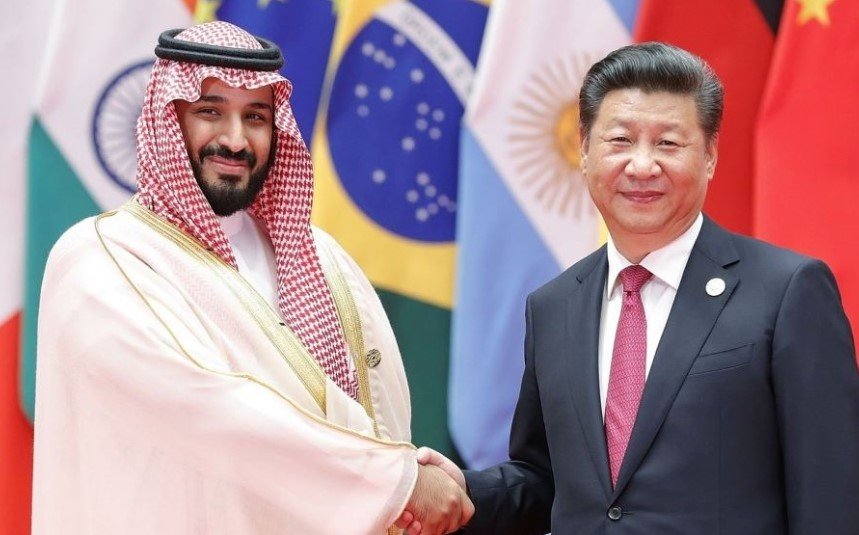Saudi Crown Prince Mohammed bin Salman plans to meet US President Donald Trump soon, sparking fresh hope for a historic peace deal between Saudi Arabia and Israel. This move could expand the Abraham Accords and reshape Middle East alliances, but it hinges on progress toward a Palestinian state and Gaza’s future.
Abraham Accords Set the Stage for Bigger Changes
The Abraham Accords started in 2020, normalizing ties between Israel and several Arab nations like the UAE, Bahrain, Sudan, and Morocco. These pacts focused on trade, security, and shared worries about Iran, marking a shift from decades of tension.
Recent updates show the accords are growing. In July 2025, reports suggested efforts to include Syria, Lebanon, and Saudi Arabia. By November, Kazakhstan joined, boosting the framework’s reach. Experts say this momentum comes from US pushes under Trump, who sees it as a way to build regional stability.
Talks have picked up speed after Gaza conflicts eased. Sources indicate indirect dialogues between Jerusalem and Riyadh aim to thaw relations strained by the war. This follows a pattern where Arab states seek economic gains while addressing Palestinian issues.

Key Players Push for Normalization
Crown Prince Mohammed bin Salman heads to Washington for talks with Trump, set for November 18, 2025. This visit revives discussions paused during the Gaza war, with US mediation playing a central role.
Trump has voiced optimism, stating more countries will join the accords soon, including Saudi Arabia. Saudi officials echo this but stress conditions. They want a clear path to Palestinian statehood, tying any deal to broader peace efforts.
Israeli leaders, including Prime Minister Benjamin Netanyahu, show interest but face domestic pushback. Reports suggest Netanyahu’s stance on regional ties makes full normalization tricky, yet direct talks could start soon.
Saudi Demands Focus on Palestinian State
Saudi Arabia remains firm on linking normalization to a two-state solution. Officials demand a timeline for Israeli withdrawal from Gaza and the return of Palestinian Authority control.
This position aligns with past statements. For instance, Saudi Foreign Ministry voices call for an international force in Gaza to ensure stability. Without these steps, Riyadh says peace with Israel stays off the table.
Here are the main Saudi conditions based on recent reports:
- Clear plan for a Palestinian state with defined borders.
- Israeli pullout from Gaza within a set timeframe.
- Deployment of global peacekeepers to oversee transitions.
- Reconstruction aid for Gaza, with Saudi involvement.
These demands aim to address humanitarian concerns while advancing diplomatic ties.
Potential Benefits and Regional Impact
A Saudi-Israel deal could transform the Middle East. It would strengthen alliances against common threats like Iran and boost economic cooperation in tech, energy, and trade.
Analysts predict billions in trade gains. Saudi investments in Israeli tech hubs could surge, while joint security pacts might deter extremism. This fits Trump’s vision of an expanded accords network, potentially including Pakistan and others.
On the ground, it might ease Gaza tensions by funding rebuilds. Peace between Islam’s birthplace and the Jewish state sends a strong message against radical groups, promoting moderation.
| Year | Key Event | Countries Involved | Outcome |
|---|---|---|---|
| 2020 | Initial Accords Signed | Israel, UAE, Bahrain | Normalized relations, trade deals |
| 2020 | Sudan and Morocco Join | Israel, Sudan, Morocco | Economic ties, US recognitions |
| 2025 | Expansion Efforts | Potential: Saudi Arabia, Syria | Ongoing talks, Kazakhstan added |
| 2025 | Saudi Talks with US | Saudi Arabia, US, Israel | Possible normalization path |
This timeline highlights the accords’ growth and current focus on Saudi involvement.
Challenges That Could Derail Progress
Not everyone agrees on the path forward. Netanyahu’s government resists firm commitments to a Palestinian state, calling it too risky amid security threats.
Public opinion in Saudi Arabia also plays a role. Many citizens want strong Palestinian support, pressuring leaders to hold firm. Plus, Iran’s influence in the region adds complexity, as any deal might provoke backlash.
Trump doubts Saudi insistence on statehood is absolute, suggesting flexibility. Yet reports show Riyadh doubling down, making concessions unlikely without real progress on Gaza.
Global factors, like US elections and oil markets, could sway outcomes. If talks stall, it might delay broader peace efforts for years.
What Lies Ahead for Middle East Peace
With the Gaza war winding down, 2025 could be a turning point. Direct Israel-Saudi negotiations, mediated by the US, might begin soon, focusing on economic pacts first.
Experts believe a deal would not just normalize ties but redefine alliances, isolating extremists. It ties into trends like Arab states prioritizing growth over old conflicts.
As these talks unfold, watch for updates on Gaza withdrawal and statehood plans. This could mark the end of an era of division and the start of real cooperation.
Share your thoughts on this potential peace deal in the comments below, and spread the word if you found this insightful.
